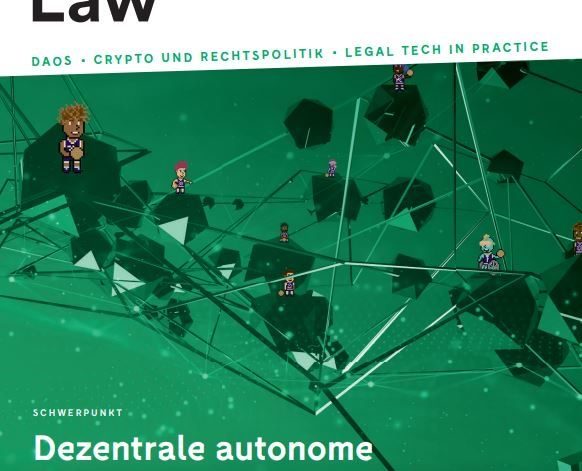In den letzten Monate durfte ich als Chefredakteur die Schwerpunktausgabe der Rethinkinglaw zu meinem Herzens- und Dissertationsthema DAOs gestalten und verantworten. Jetzt ist die Ausgabe endlich fertig und ich bin wirklich ein kleines bisschen stolz auf das Ergebnis.
Mein Ziel war es der breiten juristischen Öffentlichkeit einen tiefen Einblick in die Funktionsweise dieser neuen Organisationsform zu geben, tatsächliche Anwendungsfälle darzustellen und dabei nicht nur die oft abstrakten rechtlichen Probleme zu thematisieren. Dank exzellenterer Beiträge u.a. von Markus Büch, Kai Kremer, Dr. Biyan Mienert und Florian Glatz ist das glaube ich auch gelungen
Ganz „nebenbei“ erfahren die Leser auch noch von Benjamin Strasser, was die Bundesregierung plant, um das Gesellschaftsrecht zu digitalisieren und erhalten einen unfassbar spannenden Einblick in die Arbeit als Cryptolawyer im Interview mit Silke Noa.
Auf dem Cover seht ihr zahlreiche Jerrys, die zusammen versuchen ein NBA-Team zu kaufen. Was genau Jerrys sind und wieso sie ein NBA-Team kaufen wollen, lest ihr im Interview mit dem KrauseHouse-Creator Commodore.
Das Magazin ist beim Zeitschriftenhändler Eures Vertrauens erhältlich oder online..



